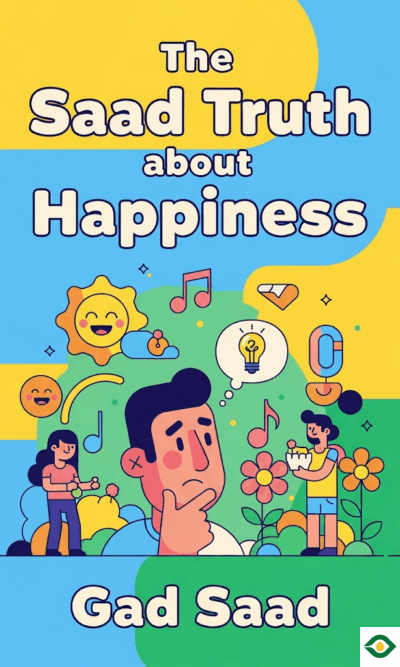Description
This story begins on a battlefield. Two branches of the same royal family face each other, ready to fight for a kingdom. The great archer Arjuna stands in his chariot and asks his driver to stop between the armies so he can see who is there. He recognizes teachers, cousins, friends, and elders on both sides. His heart sinks. He drops his bow and says he cannot fight a war that will kill people he loves. He is torn between his role as a warrior and his love for his family.
The charioteer beside him is Krishna, who is more than a guide. He is the Divine appearing in human form. Krishna begins a calm, clear conversation to help Arjuna see beyond fear and confusion. He asks why Arjuna, the bravest of fighters, has become weak at this crucial time. Arjuna explains his grief and his moral doubt. Fighting feels wrong, yet turning away also feels wrong. He does not know his true duty.
Krishna answers with the first big idea: the real self is not the body. The body is born and dies, but the inner self—the soul—does not die. It changes bodies the way a person changes clothes. Pain and joy, gain and loss, victory and defeat, all rise and fall like waves. They touch the body and mind, but they do not touch the immortal soul. A wise person learns to stay steady through these changes. When Arjuna hears this, his fear begins to loosen, but his heart is still heavy.
So Krishna adds the second big idea: duty, or dharma. Every person has a role that fits their nature and place in life. Arjuna’s role is to protect justice as a warrior. Refusing a just battle is turning away from that duty. Doing your own duty, even imperfectly, is better than doing another person’s duty well. Dharma is not about vanity or rewards; it is about serving the order of the world. Arjuna’s task is to act in line with this truth.
The third idea goes deeper: act without attachment to results. Most people are trapped by desire. We chase praise, wealth, and power, or we fear blame, loss, and pain. When we act only for results, our minds become restless. We become tied to success and failure. This tie is called bondage. Krishna teaches a clean way of action: do the right thing because it is right, and let go of the outcome. Your choice is the action; the outcome is not yours to control. This simple shift frees the heart from fear and pride. It makes work light and pure.
Krishna calls this path Karma Yoga—the yoga of action. It does not ask us to run away from life. It asks us to work with full energy and zero greed. It asks for inward stillness while the hands do their job. The mind becomes focused, the will becomes strong, and the heart becomes kind. In this way, work itself becomes a form of worship. Even small acts—sharing a meal, speaking truth, keeping a promise—can be holy when done without selfishness.
There is also Jnana Yoga—the yoga of knowledge. This is the clear seeing that the changing world is not the final truth. It is the understanding that all beings share one source. When the mind grows quiet, we see that our separate lives are like waves on one ocean. The wave rises and falls, but the water remains. Knowledge then supports action. With right seeing, we do not cling to results; with right action, the mind becomes clear enough to truly see. The two paths meet and support each other.
Krishna adds a path that is close to many hearts: Bhakti Yoga—the yoga of devotion. It is simple and deep. Offer every action to the Divine. Eat, work, speak, and serve as an offering. Bring a leaf, a flower, or a cup of water with sincere love, and it is accepted. What matters is not the size of the gift but the purity of the feeling. Devotion melts pride and fear. It turns duty into love, and love into courage. When a person sees the Divine in all beings and all beings in the Divine, they never feel alone. They serve the world as a service to God.
To ground these teachings, Krishna reveals his true nature to Arjuna. For a brief moment, Arjuna is given special sight and sees Krishna as the Cosmic Being—limitless faces and forms, all gods and all worlds held within. He sees time itself devouring armies like a fire that consumes dry grass. He understands that creation and destruction move through the will of the Supreme. Human beings are instruments in a larger design. This vision is overwhelming. Arjuna trembles, then bows. His personal fear looks small next to the vast order he has seen.
Krishna then brings the vision back to something practical. He tells Arjuna that the coming events are already held within the flow of time. Arjuna’s task is to stand up and do his duty with a clean heart. If he acts without hatred and without greed, if he surrenders his action to what is right, he will not be stained by it. Courage does not mean hardening the heart; it means trusting the truth and letting the hand do its work.
The dialogue also teaches how to train the mind. Sit with a straight back. Breathe gently. Let thoughts pass like clouds. Return to a simple focus—such as the presence of the Divine in the heart. Practice every day. Over time the mind becomes peaceful, like a clear lake. In that peace, wisdom grows. From wisdom, compassion flows. From compassion, right action follows naturally. The Gita keeps returning to this simple circle: right seeing, right feeling, right doing.
Another theme is balance. Food, sleep, work, and rest should be steady and moderate. Extremes make the mind weak. A calm life supports a calm mind, and a calm mind supports a clean will. In this balance, the three qualities of nature—restlessness, heaviness, and clarity—are better understood. We learn to rise from the heavy to the clear, from the restless to the steady. We choose what lifts the mind and let go of what drags it down.
By the end, Arjuna’s confusion is gone. He understands that life brings change, but the inner self does not change. He accepts that duty is sacred when joined with love. He agrees to act without clutching at outcomes. And he trusts the Divine order he has glimpsed. With that, Arjuna takes up his bow again. He is the same man and not the same. His hands will fight, but his heart will be steady and his motive clean.
This teaching is not only for a soldier on an ancient field. It speaks to anyone facing a hard choice, a heavy loss, or a difficult task. It says: remember who you are beyond success and failure. Do what is right because it is right. Offer your work to something higher than your ego. Keep your mind steady through praise and blame. Love the source of life in every being. When you live like this, you are free even while you act. Your actions become light, your heart becomes wide, and your days become clear.
The conversation closes with a gentle challenge. Krishna says, “I have shared wisdom. Think deeply, then choose.” Arjuna chooses courage guided by truth. That is the core of this book: a call to clear vision, selfless action, and humble devotion. It does not promise an easy road. It promises a meaningful one. And it shows a way to walk that road with a strong will, a calm mind, and an open heart.





